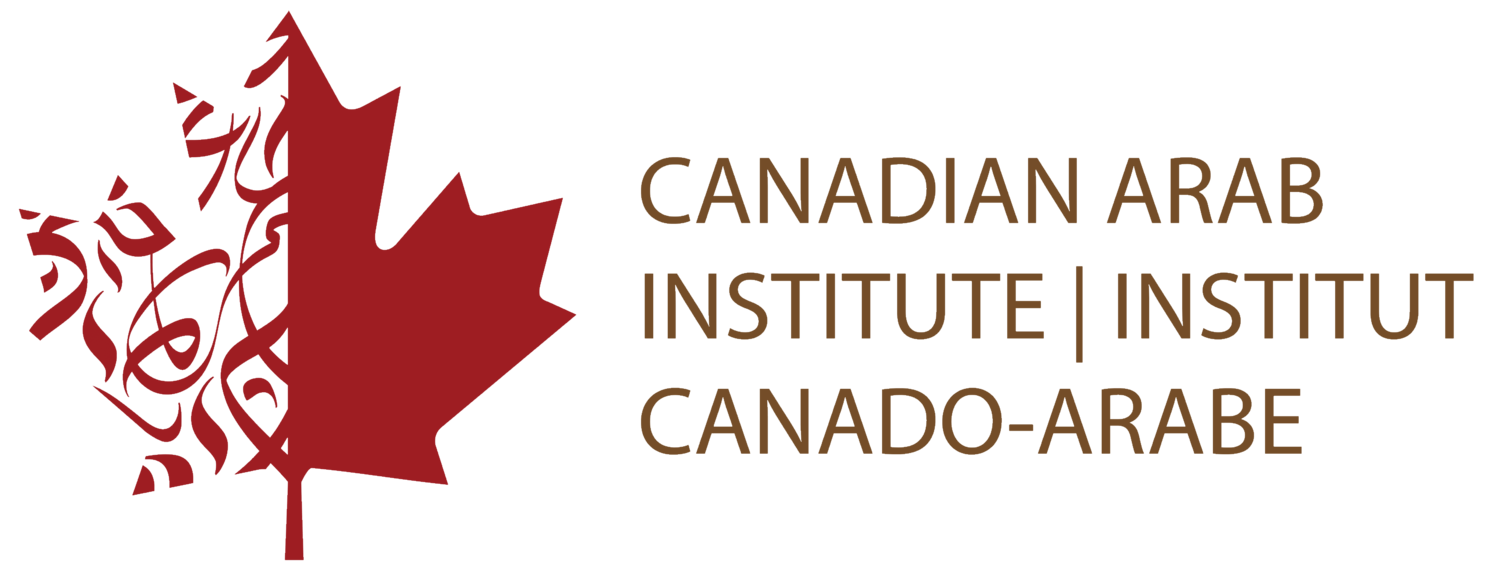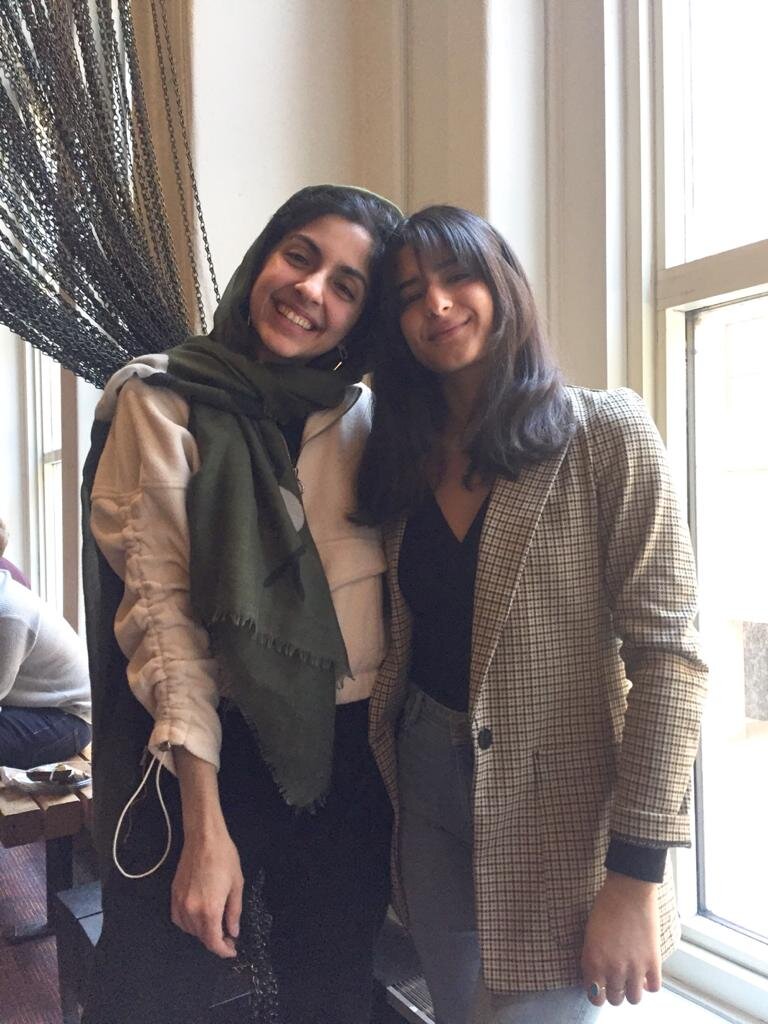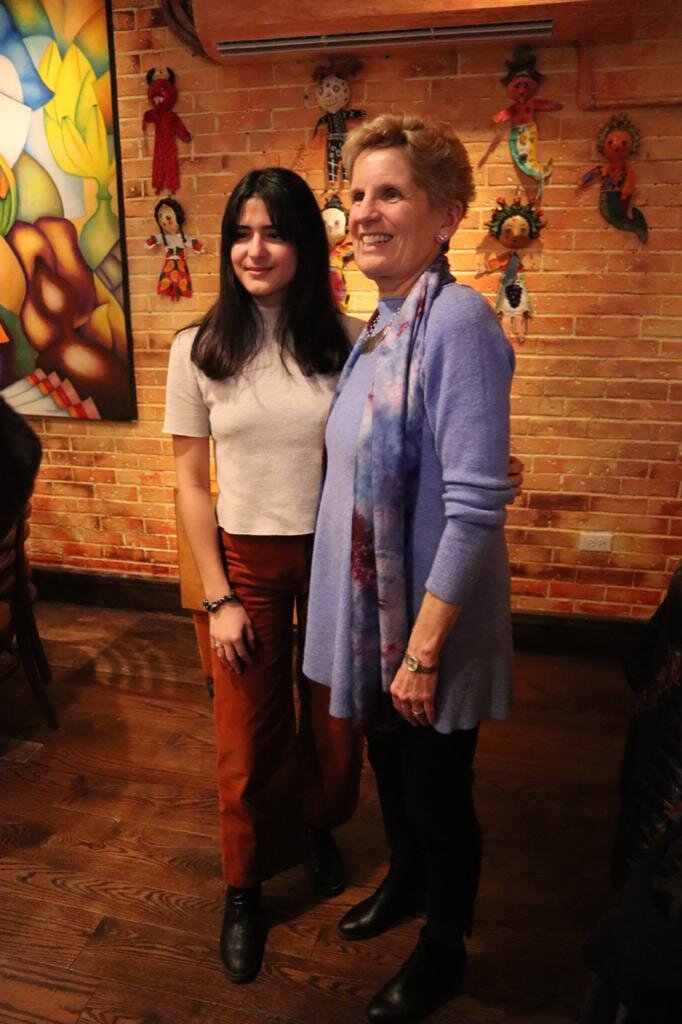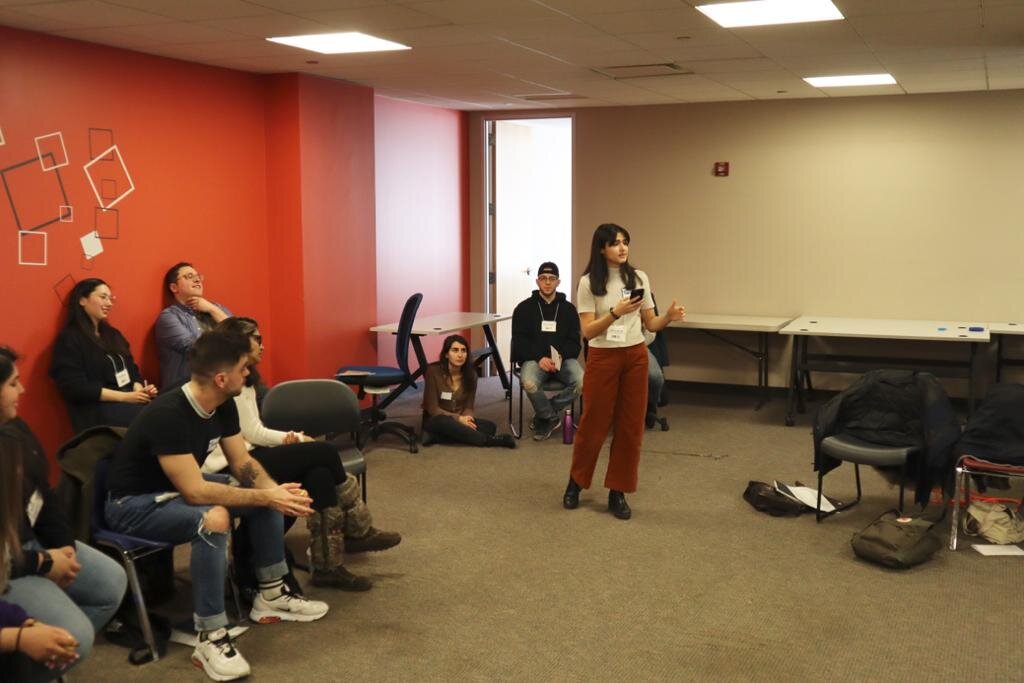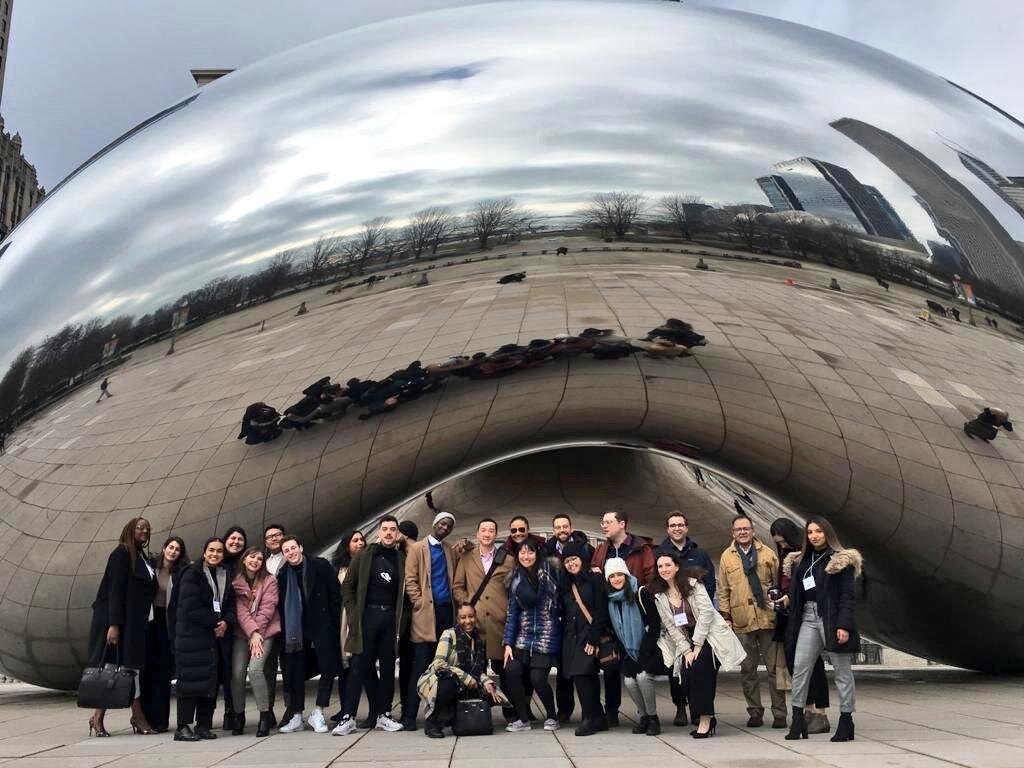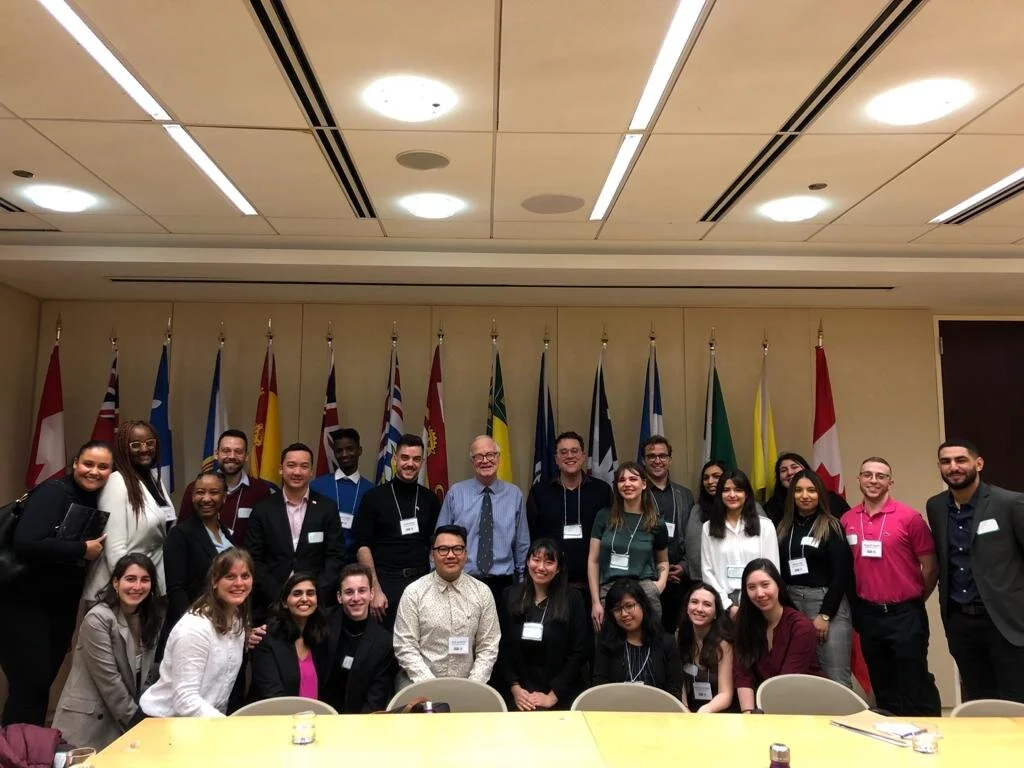Reem Mandil reflects on CanStudyUs Study Tour to Chicago, US ― CAI Academy
I recently returned from the week-long CanStudyUS study tour in Chicago, Illinois, where I had the opportunity to represent the Canadian Arab Institute (CAI) as a delegate.
Organized by the Ryerson Leadership Lab (RLL), the study tour was an opportunity for 22 youth leaders to witness and engage in change-making. This year, the tour’s theme was trust: how it is lost and built in leaders, in ourselves and in each other. With Chicago — a sister city of Toronto — as the setting for our exploration of community engagement, public policy development, journalism, activism, and more, we were able to gain actionable insights about how to do good work here at home. The timing of this trip being amidst a highly contested U.S. presidential election season also meant that we were able to examine the similarities and differences between American vs. Canadian political systems and their challenges with democratic engagement.
Each day was filled with meetings, workshops, and events across the city. Some of the leaders and organizations we met with included John Cruickshank, the Consul General of Canada in Chicago; the Logan Square Neighbourhood Association (LSNA); Hoda Katebi, political fashion writer and founder of Blue Tin Production; the Environmental Law and Policy Center (ELPC); the Mikva Challenge; the Southwest Organizing Project (SWOP); and Robert Emmons Jr., Candidate for U.S. Congress (IL-01). We were also lucky to be accompanied on this trip by Alexandra Bailey, a National Organizing Specialist at the American Civil Liberties Union (ACLU) and former Premier of Ontario Kathleen Wynne.
Here, I share some of the conversations and ideas that stuck with me the most, and I reflect on what I’ve learned about effective change-making.
I had the opportunity to ask Kathleen Wynne for her thoughts on what would be a good strategy to inform and engage on issues affecting the Canadian Arab community. She spoke from her experience of representing her constituency, and emphasized the need to “go where the people are” in order to establish trust and build long-term relationships. It was important to learn that there is no substitute for human connection in accomplishing this.
The organizers at the LSNA had so much to teach us about what makes a healthy community and how to fight for one. We learned about their strategies (and success stories!) for fighting gentrification in their neighbourhoods, for supporting their school children, and for standing with their immigrant population. I was deeply inspired by the sheer love and respect these organizers had for the community they call home, and how they learned from, lifted, and supported one another throughout all their efforts.
A crucial figure on this trip for me was Hoda Katebi, who shared some of her experiences as a Muslim Iranian-American woman and how they influenced her work in identity reclaimation and political fashion. She emphasized the importance of being unwaveringly true to yourself and to your values throughout your pursuit of justice.
Lastly, the Mikva Challenge gave us a glimpse into their efforts focused on developing youth to be empowered, active participants in civic and political life. With a very similar goal of fostering a culture of civic engagement among Canadian Arab youth, I believe the CAI Academy can learn a lot from an organization such as the Mikva Challenge, a learning process I hope to facilitate.
Here are some more general, important lessons I learned on how to be a positive, effective change-maker:
Continuously ask your community what they need to feel supported
Avoid pigeon-holing your responsibilities; change is necessarily holistic
We have so much to learn from each other, so ask for people’s stories
Go where the people are
Moving forward, I hope to take the energy, connections, and lessons gained from this study tour and apply it to making change in my communities.
On a final note, despite all the influential leaders and organizations we met with, the greatest connections I made were with my fellow youth leaders. I am so grateful for their empowering friendships and I look forward to supporting them in their future efforts, wherever they may be. Thank you to the CAI and the RLL for this incredible opportunity.
